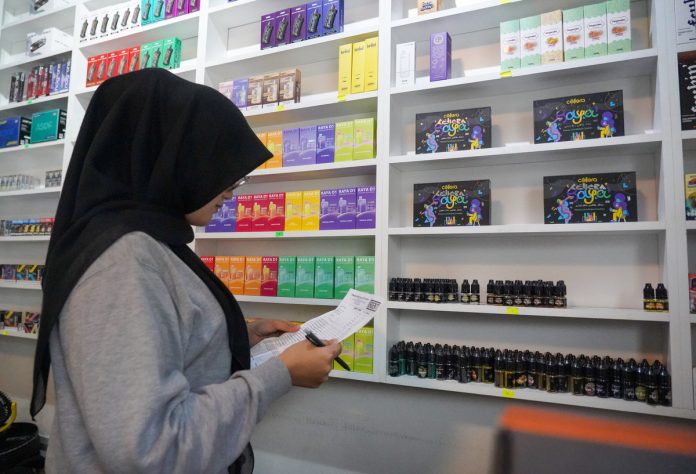PETALING JAYA: As the Selangor and Negeri Sembilan state governments weigh the possibility of banning vape sales, retailers say they are bracing for substantial losses if the proposal materialises without transitional support.
Muhammad Fidzree Tamin, 36, who has been managing a vape outlet in SS24, Petaling Jaya since 2016, said his retail sales alone could generate between RM100,000 and RM150,000 monthly.
Should the vape ban be enforced soon, it could hurt such retailers, especially after they have procured high-value supplies.
“Restocking alone costs around RM50,000. If there’s no transition period, we lose everything we’ve stocked for the month. That’s easily RM50,000 gone, just like that.
“Including rent and operating costs, a sudden shutdown could result in over RM60,000 in immediate losses per outlet,” said Muhammad Fidzree.
“People underestimate the scale of this industry. We’re not some underground set-up. We’ve complied with existing regulations.
“We pulled advertising, reduced puff limits and shut our social media. Now, it feels like we’re being left in the dark.”
Muhammad Fidzree had put up the “No Below 18” signboard inside and outside his shop and also the “No Smoking” sign, stating that it was a mandatory requirement long before the law was first enforced in 2024.
“The vape store itself is one of the prohibited areas to smoke or vape in. Hence, we’re obliged to put up those two signboards to ensure that we do not endorse smoking or vaping in commercial premises.”
Muhammad Fidzree said he has no intention of continuing operations illegally should a ban take place.
“If Selangor and Kuala Lumpur were to enforce the ban, we will not operate underground. We just need time, six months or a year, to clear our stocks.”
He also pointed out that shop managers and employees could face difficulty finding alternative jobs, given how niche the vape industry is.
“Most of us specialise in vape retail. Switching to electronics or fashion retail isn’t straightforward. The industry may look informal on paper, but it employs people full-time.”
Shahfiq Ikmal, 29, a vape shop owner in Damansara Perdana, Petaling Jaya, echoed the same concerns, stating that his shop easily carries RM30,000 worth of inventory at any given time.
“We spend around RM10,000 to RM30,000 each time we restock. If the government announces a ban suddenly, thousands of ringgit are gone. And we still have to pay rent, as we have rental contracts.”
Shahfiq said his shop, in operation for four years, has also taken steps to comply with regulations, such as installing window tinting, halting promotional social media posts and refusing sales to underage individuals.
“We never sell to kids. Some shops nowadays will ask for ICs, but I assess people by how they look. If they seem underage, I ask their age or just turn them away. I’ve lived in this community long enough to know who’s who.”
He said many vape retailers had to register under a generic “electronics” category with the Companies Commission due to the absence of a vape-specific code, complicating tax and compliance matters.
He believes stronger enforcement and collaborative research would be more effective than a blanket ban.
The Malaysian Vape Chamber of Commerce said it is working with relevant agencies to push for proper registration pathways for vape businesses.








